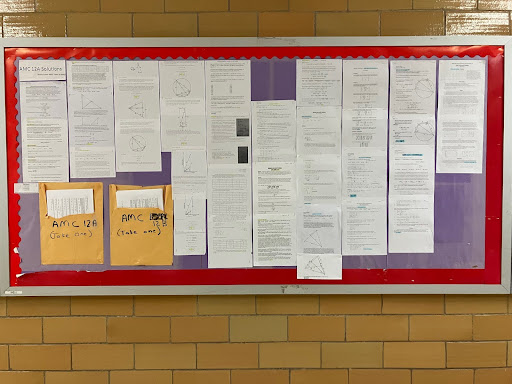Since ChatGPT’s release in November 2022, the use of the Artificial Intelligence (AI) program has skyrocketed. Its features, including writing text, answering questions, and summarizing information, have attracted billions of users since its release. By December 2022, it had gained 266 million users, and in November 2024, it reached a staggering 3.8 billion users, with around 400 million active users.
In only three years, ChatGPT has released increasingly advanced versions of the program, including GPT-4o in 2024, with impressive features that led to a surge in user activity. GPT-4o supports image, audio, and text inputs and surpasses previous models by Open AI in textual intelligence and reasoning.
As ChatGPT’s abilities grew, so did students’ reliance on the program for schoolwork, ranging from simple searches to outright plagiarism.
“I use it as a search engine, but I try not to use it,” admitted Social Science major Maisie Carroll (’25). “I don’t like the idea of using it, because I don’t like the idea of it replacing writing essays.”
One anonymous student noted that they use ChatGPT at least three to four times a day, mostly using it to generate “ideas for homework”, or to get “exact answers for homework” if it is really hard.
In a poll conducted on The Survey’s Instagram, 50% of respondents admitted to using AI at least once a day. Mr. Rupesh Das, a computer science teacher attributed the high level of usage to the sheer convenience of the program. He also noted the pushback against AI use expressed by many teachers.
“[It’s] a generational thing,” he said. “When I was in school it was the beginning of access to the internet, and teachers had a problem with that.”
Yet the growing AI industry poses serious problems well beyond the classroom. The data centers used by ChatGPT are rapidly consuming one of Earth’s scarcest resources: fresh water. Over 97% of the world’s water is found in the ocean, which has a salt content too high to be used for industrial purposes or human consumption. Over two thirds of the remaining water is locked in ice caps and glaciers, leaving only 0.5% available fresh water.
AI uses this limited freshwater supply in three ways: cooling servers, electricity generation, and supply-chain-related consumption. For each search, ChatGPT uses between seven and 47 milliliters of water, depending on the data center location. To produce a response of around 100 words, ChatGPT requires 519 milliliters of water, approximately the same amount as a bottle of water.
Data centers contain servers which are used to store, process, and feed data through multiple servers into one “brain,” which rapidly consumes information all day, using large amounts of energy and memory.
“Think about it like this,” Mr. Das suggested. “You have the next 24 hours to become an expert at some period of history. What are you going to do? You’re going to start reading everything you can get your hands on. But you can only read a certain amount in a certain period of time. Now, imagine if you were multiplied by seven million, and all of you are reading at the same time. That’s like how AI works.”
According to a report by Cornell University, “Google’s self-owned data centers alone directly withdrew 29 billion liters and consumed (i.e., evaporated) more than 23 billion liters of freshwater for on-site cooling in 2023, nearly 80% of which was potable water.”
Mr. Das described this process as similar to a computer’s cooling system. When using a computer, a fan occasionally blows cool air over portions of the computer’s hard disk to avoid overheating. In a data center, this cooling occurs on a much larger scale, so that the servers can run at 100% at all times. The air conditioning used to cool the centers uses high amounts of water, resulting in the evaporation of typically potable water.
Unlike Google, Microsoft, and Facebook, ChatGPT has yet to make a sustainability commitment. In a Survey poll, 66% of respondents said they were aware of ChatGPT’s environmental impact, yet still use it daily.
Oli Pape (‘26), an Environmental Engineering major, agreed with Maisie that ChatGPT’s cost in water makes its use unjustifiable.
“A lot of people don’t know about the environmental effects, or if they do they don’t care because it’s invisible,” they noted. “I think what we do needs to be taught about what we’re doing and show the effects of what we are doing.”
They expressed more general fear as well. “If we screw ourselves over, the Earth is going to survive, but it’s us that are going to die,” they cautioned. “We are literally risking our own destruction because we don’t want to sit down and do our homework.”
Maisie Carroll also noted that she understands students’ use of the program, given Tech’s heavy workload, but hopes that students will make educated choices in the future.
“I think it’s unrealistic to say stop using ChatGPT, but before you do it consider whether you really need to,” she said. “Understand the consequences of what you’re doing and realize that maybe you don’t need to use it for everything. Just do it yourself, and then you’re saving a few bottles of water.”








































